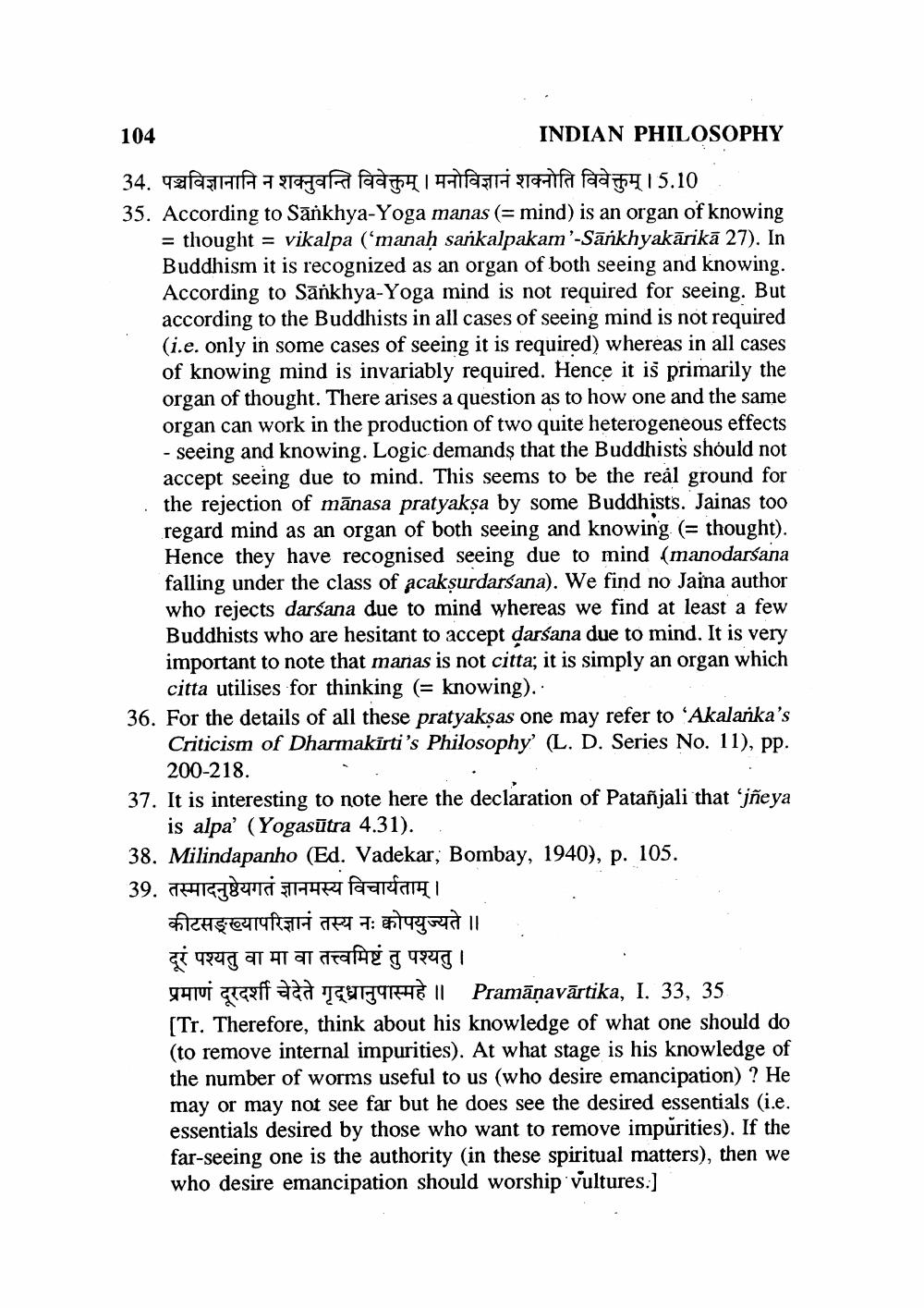________________
104
INDIAN PHILOSOPHY 34. Y EHI - raapai Part -asri gola ad 15.10 35. According to Sāňkhya-Yoga manas (= mind) is an organ of knowing
= thought = vikalpa (“manaḥ sankalpakam'-Sāňkhyakārikā 27). In Buddhism it is recognized as an organ of both seeing and knowing. According to Sankhya-Yoga mind is not required for seeing. But according to the Buddhists in all cases of seeing mind is not required (i.e. only in some cases of seeing it is required) whereas in all cases of knowing mind is invariably required. Hence it is primarily the organ of thought. There arises a question as to how one and the same organ can work in the production of two quite heterogeneous effects - seeing and knowing. Logic demands that the Buddhists should not accept seeing due to mind. This seems to be the real ground for the rejection of mānasa pratyakşa by some Buddhists. Jainas too regard mind as an organ of both seeing and knowing (= thought). Hence they have recognised seeing due to mind (manodarśana falling under the class of acaksurdarśana). We find no Jaina author who rejects darśana due to mind whereas we find at least a few Buddhists who are hesitant to accept darśana due to mind. It is very important to note that manas is not citta; it is simply an organ which
citta utilises for thinking (= knowing). 36. For the details of all these pratyakşas one may refer to 'Akalarika's
Criticism of Dharmakirti's Philosophy (L. D. Series No. 11), pp.
200-218. . . 37. It is interesting to note here the declaration of Patañjali that 'jñeya
is alpa' (Yogasūtra 4.31). 38. Milindapanho (Ed. Vadekar, Bombay, 1940), p. 105. 39. 1484 144pifaarfany i
कीटसङ्ख्यापरिज्ञानं तस्य नः क्वोपयुज्यते ।। दूरं पश्यतु वा मा वा तत्त्वमिष्टं तु पश्यतु । UTIU graaffaaa TEENÈ II Pramāņavārtika, I. 33, 35 [Tr. Therefore, think about his knowledge of what one should do (to remove internal impurities). At what stage is his knowledge of the number of worms useful to us (who desire emancipation)? He may or may not see far but he does see the desired essentials (i.e. essentials desired by those who want to remove impurities). If the far-seeing one is the authority (in these spiritual matters), then we who desire emancipation should worship vultures.)




